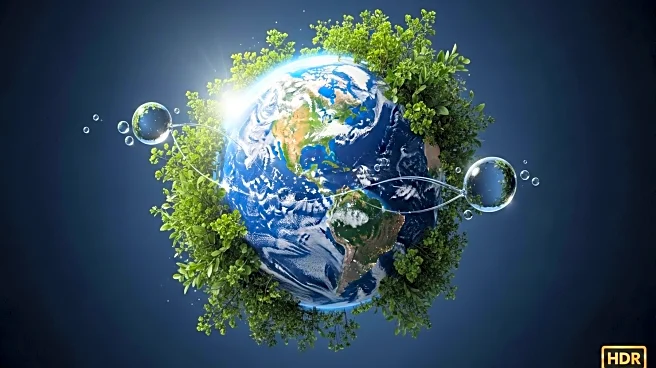What's Happening?
Pope Leo XIV has issued a strong statement condemning those who downplay the impact of climate change. In a speech at Castel Gondolfo, he criticized individuals who ridicule the concept of global warming and emphasized the need for global action. The Pope's remarks are seen as an implicit critique of President Trump's recent comments dismissing climate change as a 'con'. Pope Leo called for citizens worldwide to pressure politicians into taking decisive action to mitigate environmental damage, referencing the teachings of his predecessor, Pope Francis, and the landmark document Laudato Si'.
Why It's Important?
Pope Leo's comments underscore the Vatican's continued commitment to addressing climate change, a critical global issue. His call for action highlights the moral responsibility of individuals and governments to protect the environment for future generations. The Pope's stance may influence public opinion and encourage political leaders to prioritize climate policies. As the first U.S.-born Pope, his views carry significant weight in the U.S., potentially impacting the national discourse on climate change and environmental policy.
What's Next?
The Pope's remarks may lead to increased advocacy for climate action among religious and environmental groups. His call for citizen involvement could inspire grassroots movements to demand stronger climate policies. The upcoming COP30 conference in Brazil presents an opportunity for world leaders to address the issues raised by the Pope and commit to meaningful environmental action. The Vatican's involvement in climate discussions may also encourage other religious leaders to speak out on the issue.
Beyond the Headlines
Pope Leo's intervention highlights the ethical dimensions of climate change, framing it as a moral issue that transcends political boundaries. His emphasis on the responsibility to care for creation aligns with broader religious teachings on stewardship and justice. The Pope's critique of climate change denial may challenge political leaders to reconsider their positions and engage in more constructive dialogue on environmental issues.










